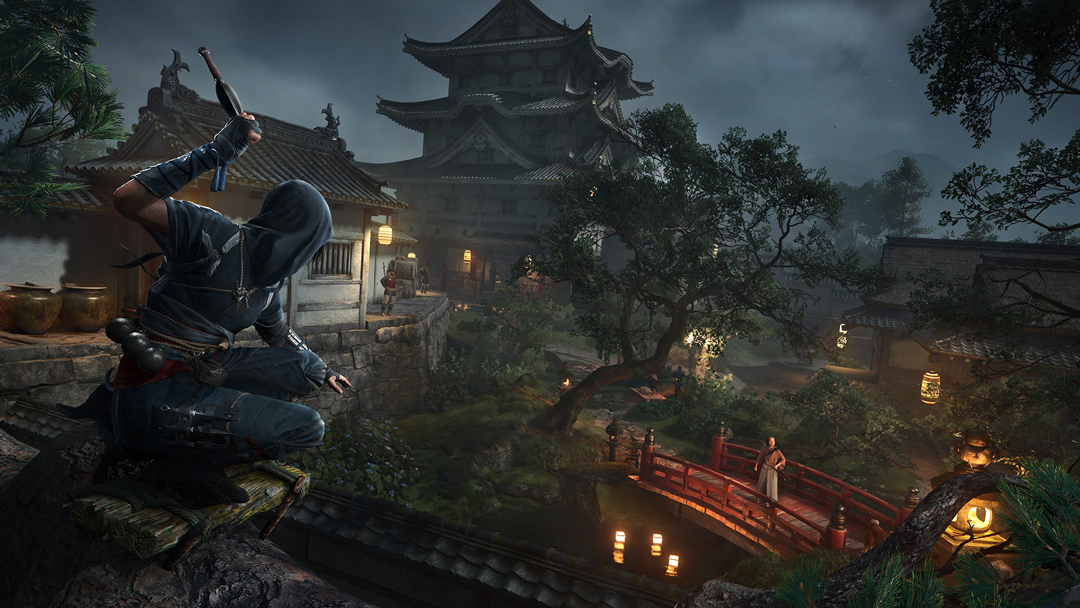Assassins Creed Shadows Review
A Thrilling Samurai Stealth Adventure
20 March 2025 · Marcus Wilson
IGN
Metacritic
The Bottom Line
Assassins Creed Shadows delivers stunning visuals, refined stealth mechanics, and authentic historical storytelling set in 16th-century Japan. Despite occasional narrative shortcomings and minor AI inconsistencies, it remains highly engaging. Ideal for fans of stealth-action gameplay and history buffs seeking immersive, detailed experiences within the Assassin’s Creed universe.
Available on:
What we like
- Stunning visual design and detailed environments
- Refined stealth mechanics and diverse tactical options
- Compelling historical setting and authentic cultural representation
- Strong audio design and immersive soundtrack
What we don't like
- Occasional narrative depth shortcomings
- Minor AI behavior inconsistencies
- Limited multiplayer and online features
As a dedicated fan of the Assassin's Creed series, I've eagerly anticipated Ubisoft's latest entry, "Assassins Creed Shadows." Set in 16th-century Japan, this instalment aims to bring a fresh experience to the long-standing franchise with new stealth mechanics, dual protagonists, and rich historical storytelling.
Game Design and Visual Fidelity
One of the immediate standouts in my experience was the meticulous design and breathtaking visual fidelity Ubisoft delivered in Assassins Creed Shadows. From sprawling landscapes dotted with cherry blossoms to intricately detailed city streets, each scene reflects remarkable craftsmanship. The authentic Japanese architecture, period-accurate attire, and detailed environments greatly enriched my immersion throughout the gameplay.

Character design is another notable highlight. The dual protagonists, each with distinct appearances reflecting their unique backstories, showcase Ubisoft's dedication to visual storytelling. During my gameplay, subtle details such as the fabric textures on kimonos and realistic weapon designs continuously impressed me.
Environmental interactions were seamlessly integrated. I found it satisfying to navigate rooftops, slide through narrow gaps, and utilize environment-based hiding spots effectively. This design significantly enhanced the stealth aspects of the gameplay.
Storyline and Narrative
The narrative in Assassins Creed Shadows is ambitious, weaving historical events with fictionalized drama effectively. The dual protagonists, a shinobi and a disgraced samurai, each offer distinct narrative perspectives and thematic contrasts, enriching the storytelling.
However, despite this promising setup, I occasionally found the storyline lacked depth in certain key emotional moments. Some character motivations felt underdeveloped, leaving me yearning for a more thorough exploration of their psychological landscapes. Nonetheless, the overall historical backdrop remained compelling and engaging enough to keep me invested until the end.

Ubisoft's efforts to incorporate real historical figures and events from Japan's Sengoku period added authenticity and interest, providing educational value alongside entertainment. This blend of historical accuracy with imaginative storytelling kept me consistently engaged, despite minor narrative shortcomings.
Stealth and Gameplay Mechanics
Gameplay mechanics, particularly stealth, are at the heart of Assassins Creed Shadows. Ubisoft has clearly learned from past entries and other stealth-action games, refining mechanics to create more satisfying gameplay loops.
The stealth system is notably improved, featuring realistic enemy AI behaviors, responsive controls, and diverse stealth tactics. Throughout my playthrough, I appreciated the variety in approach---from traditional stealth takedowns to strategic distractions and the clever use of environmental elements like shadows and noise.
Combat mechanics complement the stealth experience, emphasizing precision and timing rather than brute strength. I found this approach rewarding, encouraging strategic thinking rather than mindless button-mashing. The addition of new stealth tools such as smoke bombs, grappling hooks, and distraction items further expanded gameplay possibilities.

However, I did encounter occasional AI inconsistencies, with enemies sometimes failing to detect obvious disturbances or reacting unpredictably. Although not frequent enough to severely detract from enjoyment, these moments slightly diminished the overall immersion.
Audio and Soundtrack
The audio design in Assassins Creed Shadows greatly enhances the immersive experience. Traditional Japanese instruments and compositions provide an authentic auditory backdrop, elevating emotional moments and intensifying action sequences. I particularly admired the adaptive soundtrack, smoothly transitioning from serene exploration melodies to intense combat rhythms.
Voice acting is commendable, with the Japanese and English voice casts delivering strong performances. Characters' emotional nuances were effectively conveyed, helping offset some of the previously mentioned narrative shortcomings.
Environmental sounds---such as bustling market chatter, rustling foliage, and distant battle cries---were meticulously implemented, adding to the realism and immersive quality of the game world.
Graphics and Technical Performance
Assassins Creed Shadows showcases impressive graphical prowess. On high-end platforms, it delivers stunningly realistic visuals and smooth performance, even during intensive action sequences and densely populated areas.

During my testing, I rarely experienced significant frame rate drops or noticeable graphical glitches. Load times were minimal, facilitating uninterrupted gameplay experiences. However, players on older hardware might experience occasional performance dips or reduced graphical fidelity, though these instances were manageable and did not greatly impact the overall gaming experience.
Multiplayer and Online Features
Ubisoft opted to keep Assassins Creed Shadows primarily a single-player experience, with minimal online components. Leaderboards for stealth challenges and community-driven missions provided engaging secondary activities, but the main campaign remained a solo journey.
In my opinion, this was a wise decision, allowing developers to focus resources and polish on delivering an immersive single-player story. Nonetheless, some players may miss the multiplayer dynamics found in previous series entries, which offered collaborative or competitive gameplay modes.
Pricing and Value
Priced at the standard AAA gaming level, Assassins Creed Shadows offers substantial content to justify its cost. The main campaign took me around 35-40 hours to complete, supplemented by extensive side quests, collectible hunting, and exploration opportunities.
Considering the depth of content and high production values, I found Assassins Creed Shadows to provide good value for players seeking extended gameplay experiences. Ubisoft also committed to post-launch DLC, promising additional storylines and exploration areas, further increasing the game's overall value proposition.
Conclusion
In conclusion, Assassins Creed Shadows stands as a strong entry in the Assassin's Creed series, skillfully blending historical immersion with refined stealth gameplay and striking visuals. Despite minor narrative shortcomings and occasional AI inconsistencies, its strengths far outweigh its weaknesses.
Fans of stealth action games and historical adventures will find much to enjoy in Assassins Creed Shadows. Ubisoft's attention to detail, engaging gameplay mechanics, and vibrant setting make this title a worthy addition to the franchise, delivering a satisfying and memorable gaming experience.